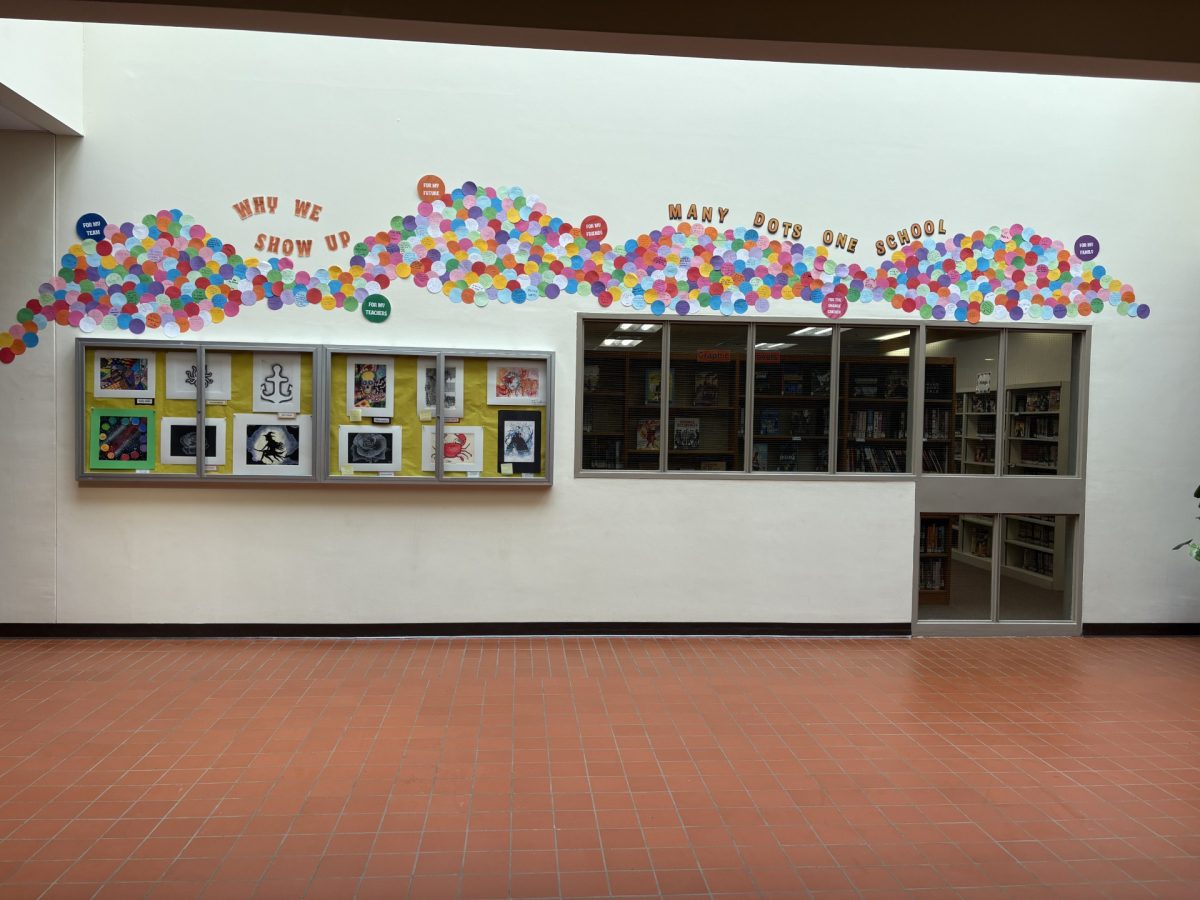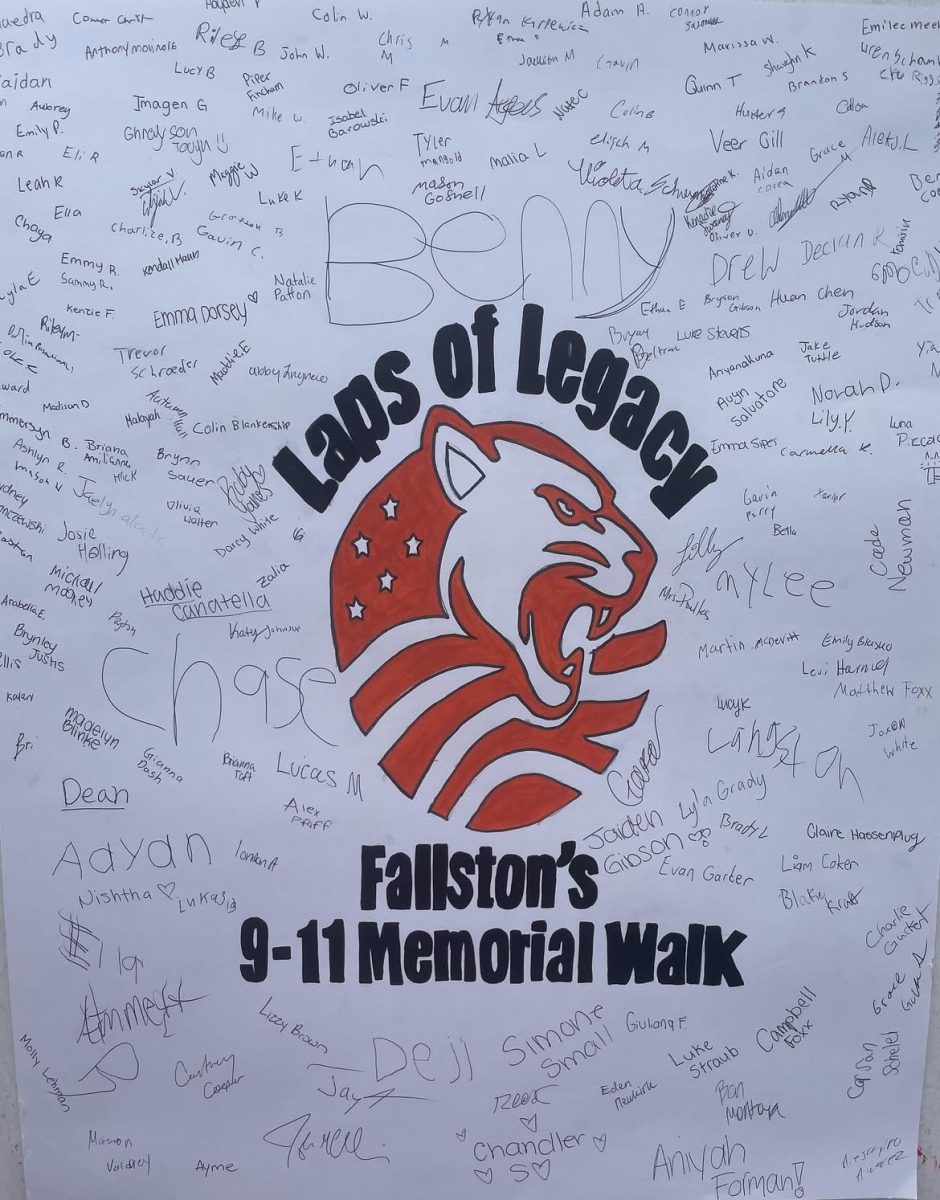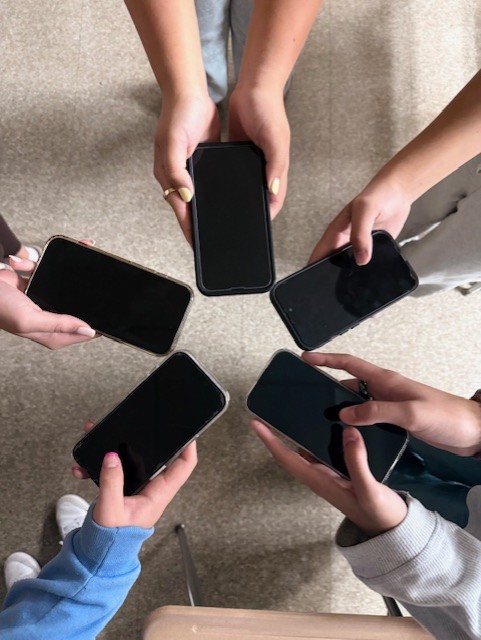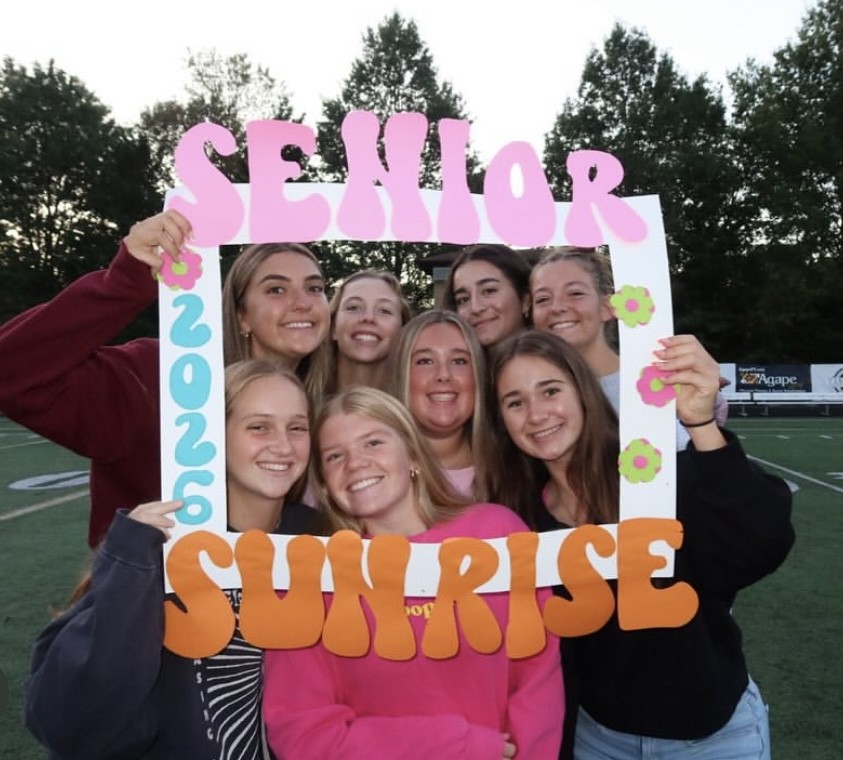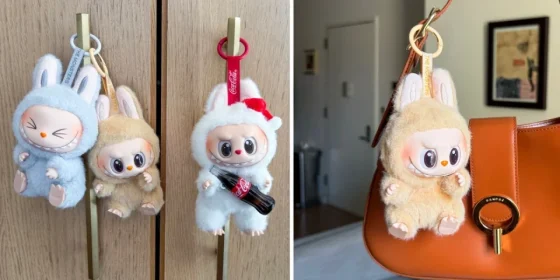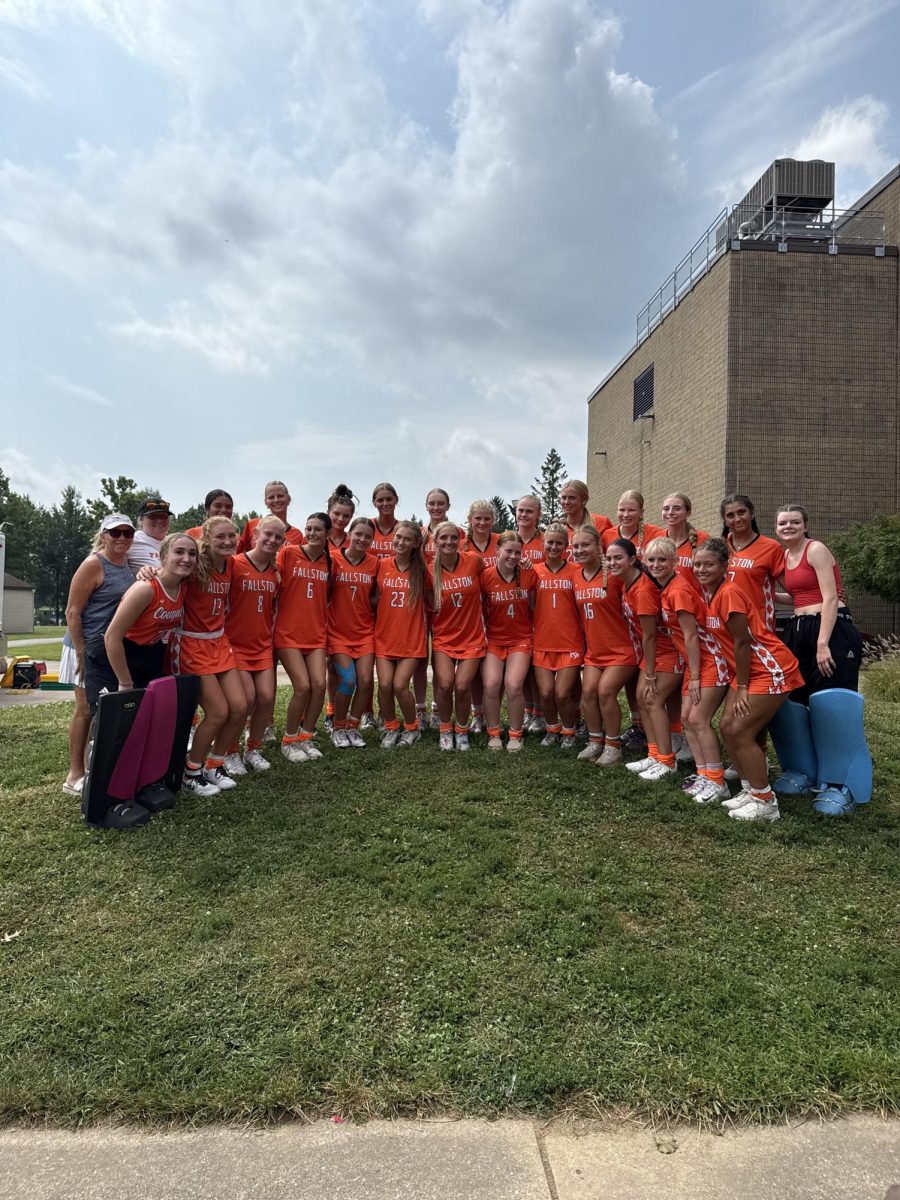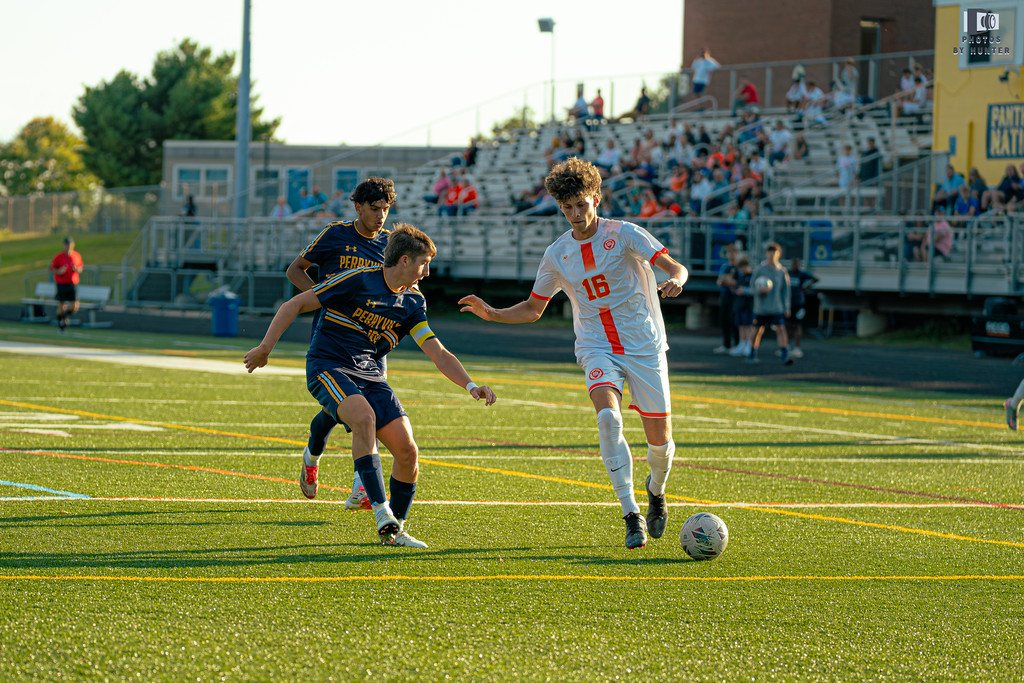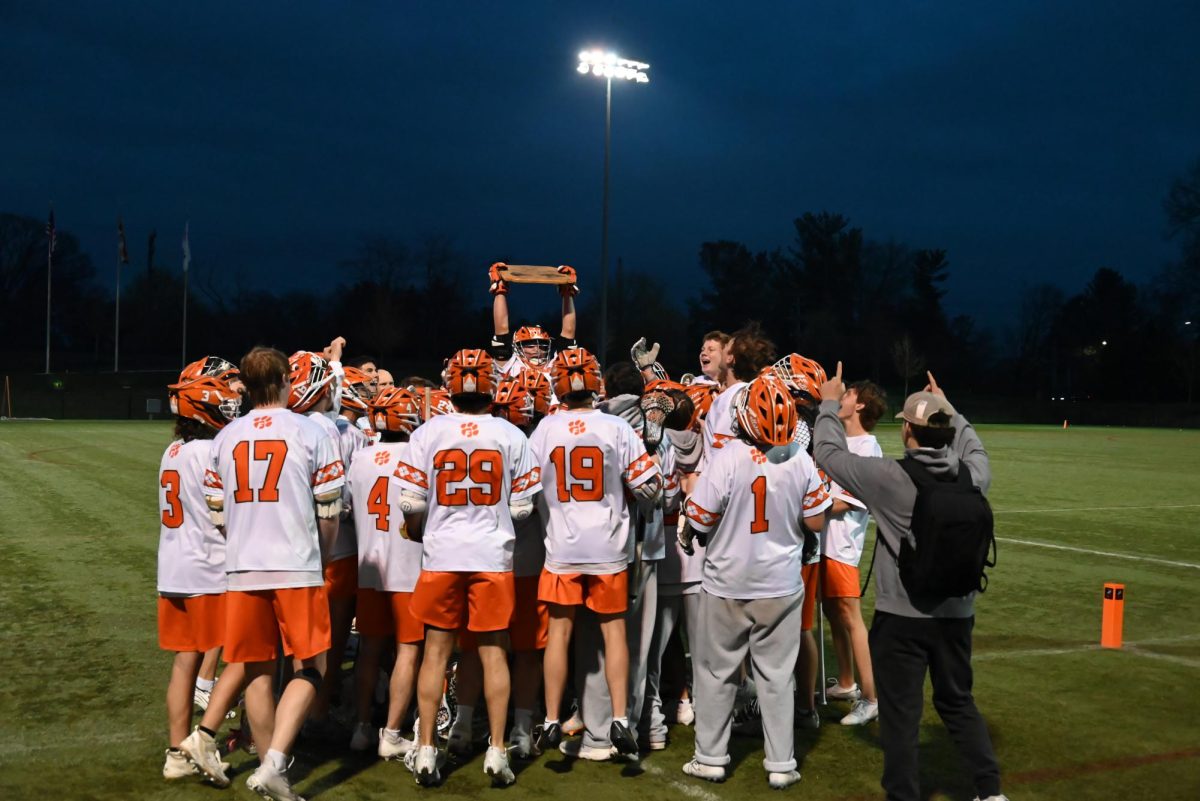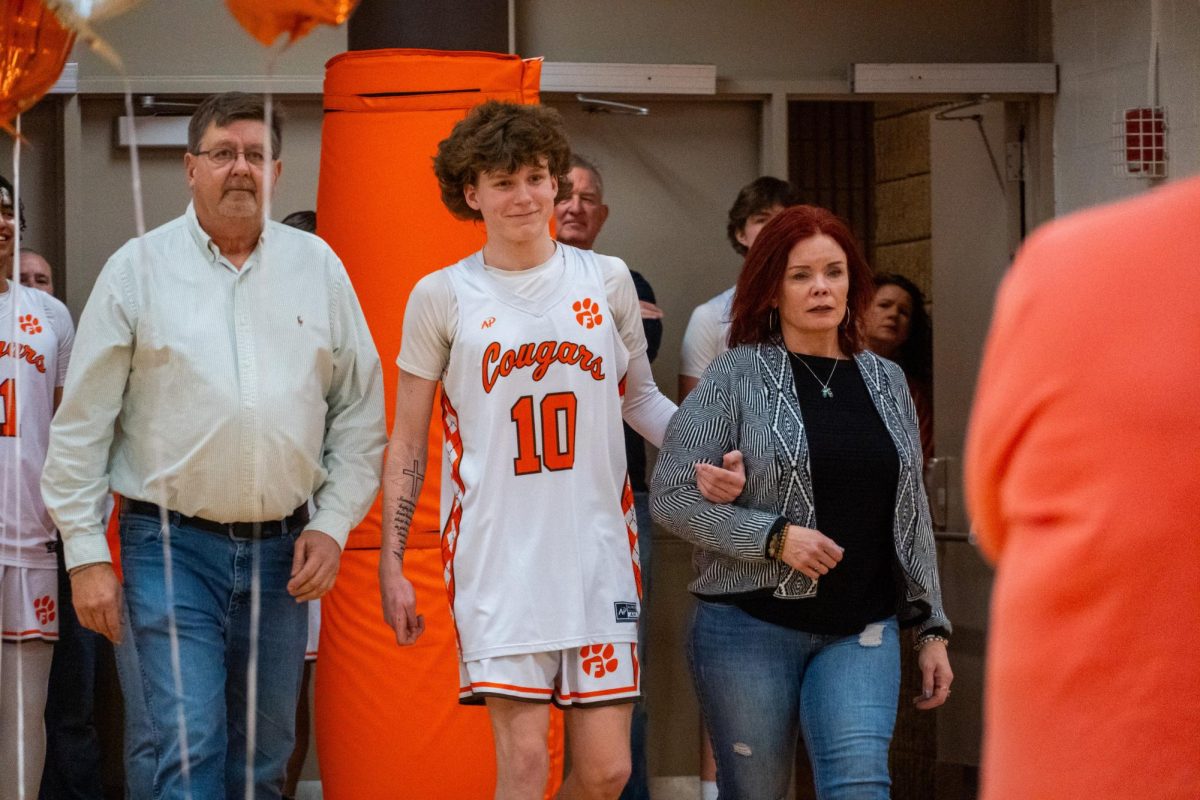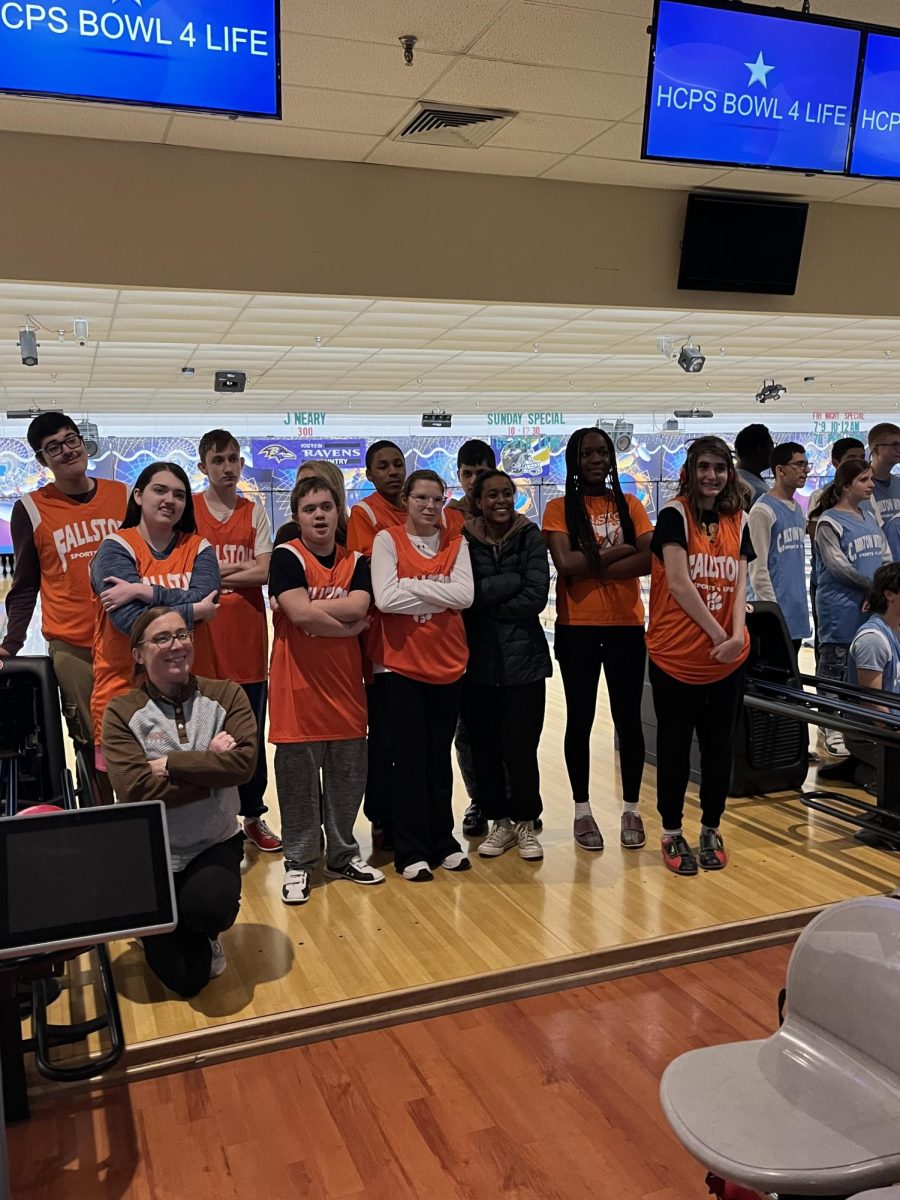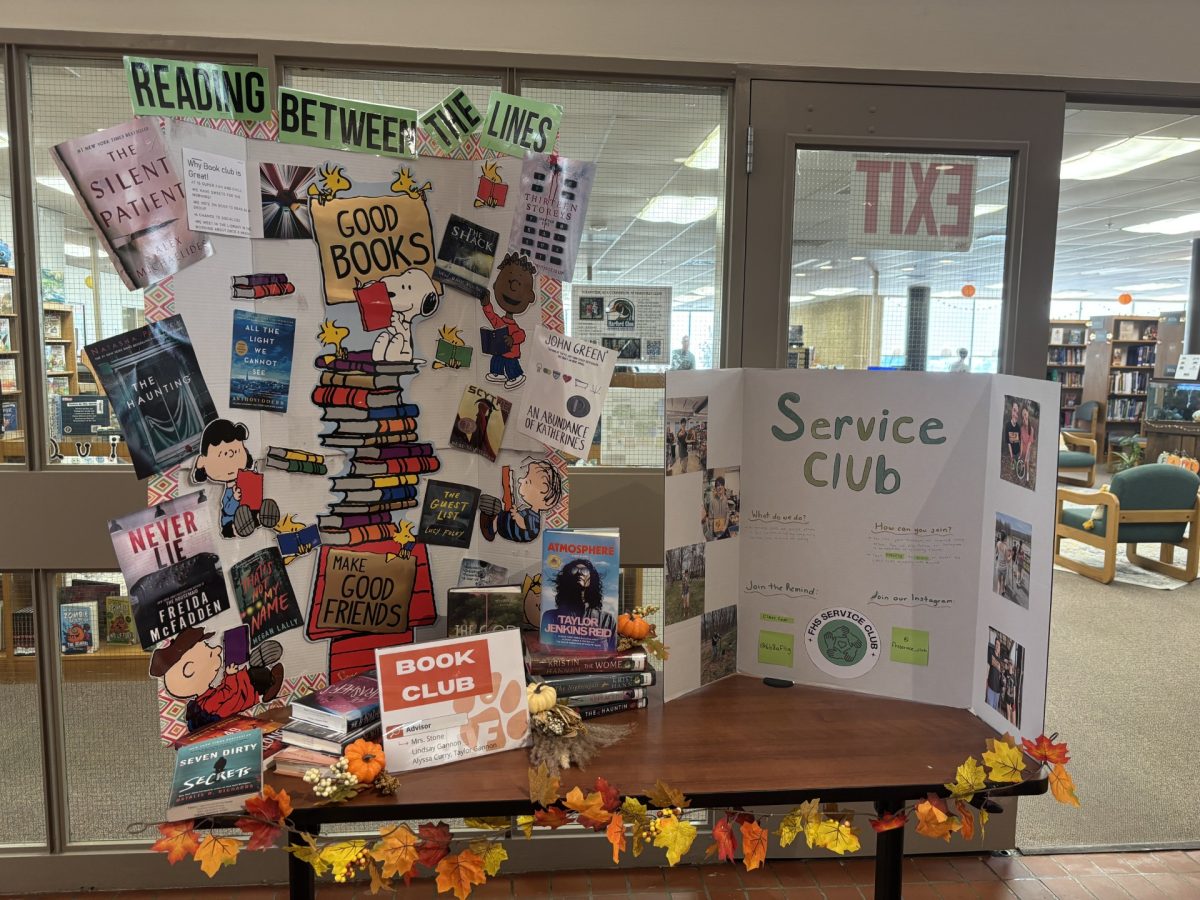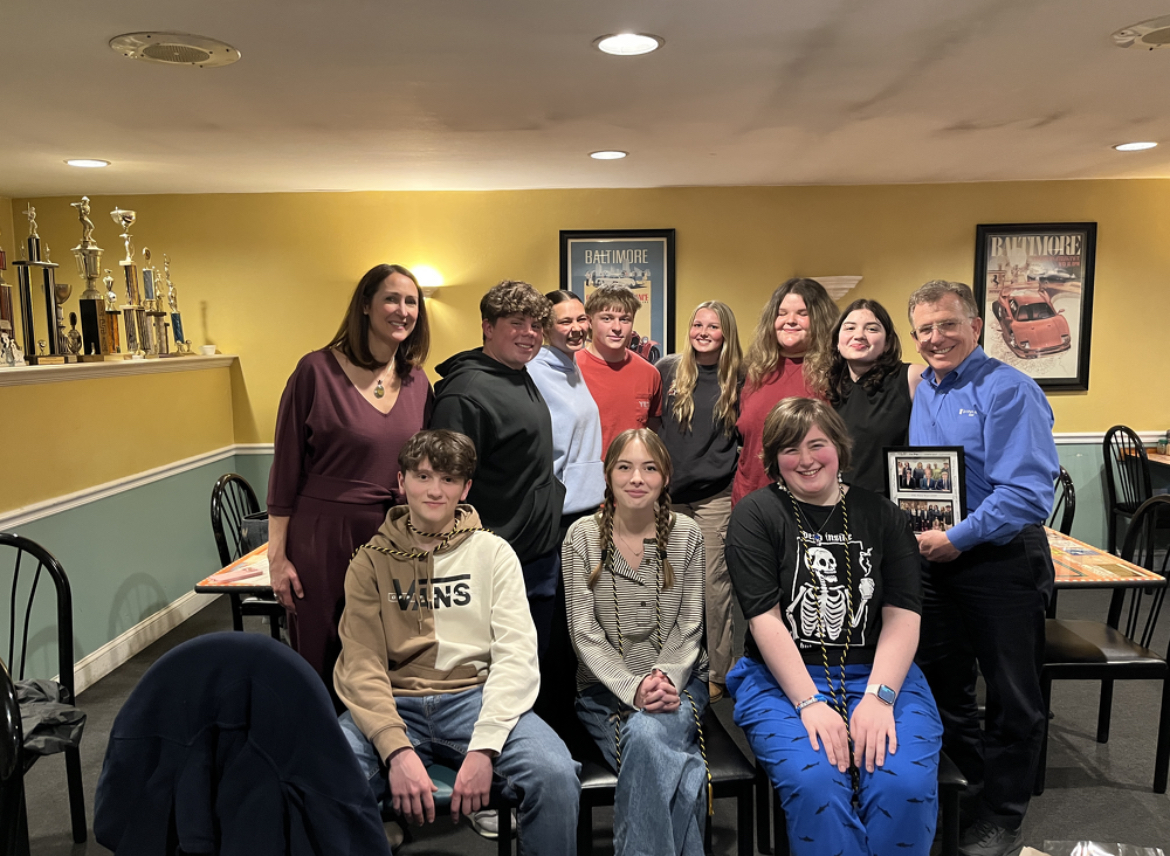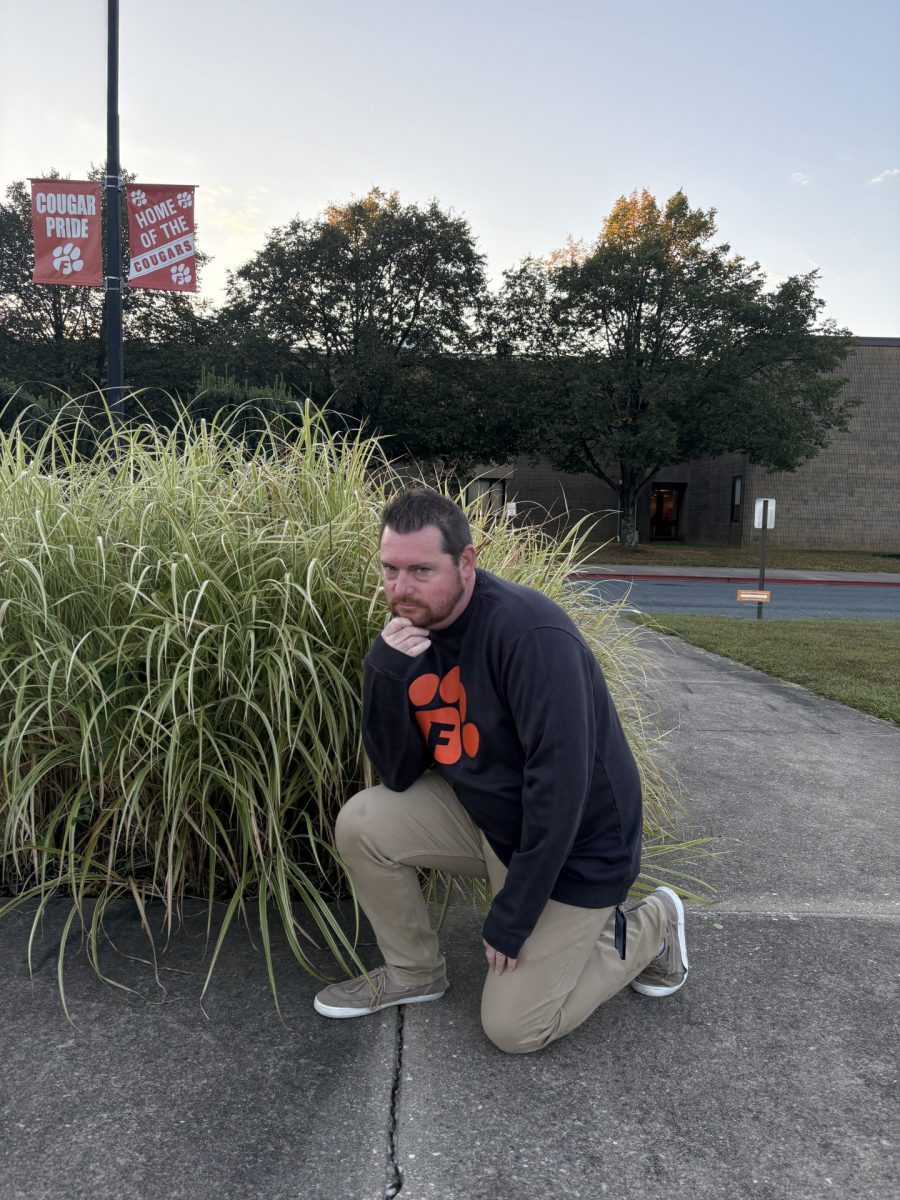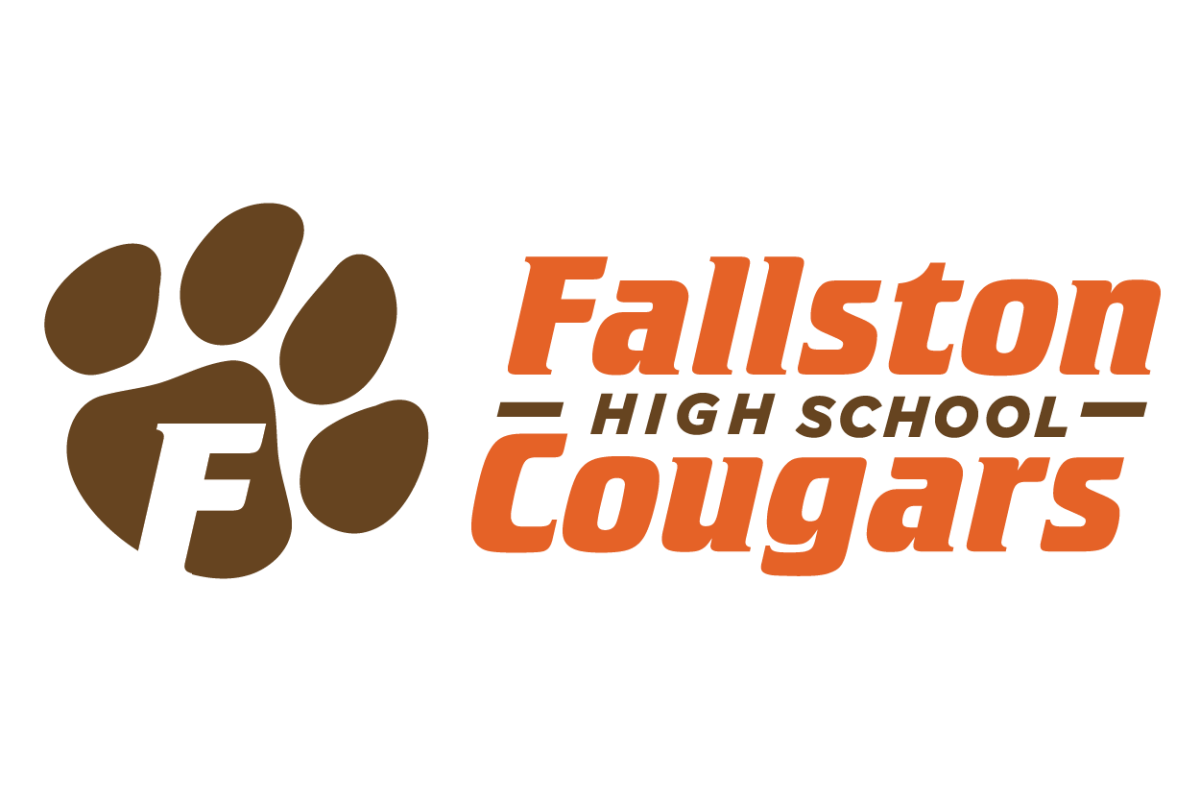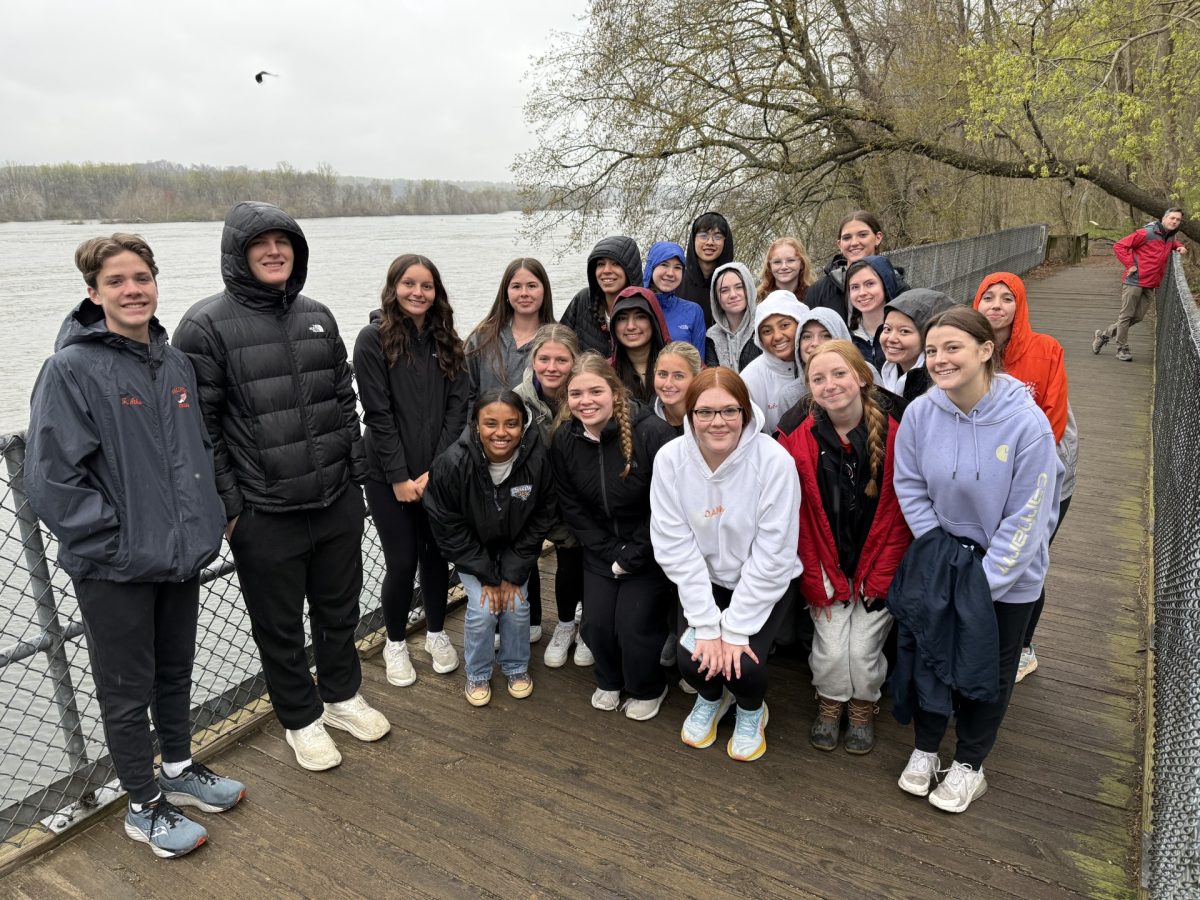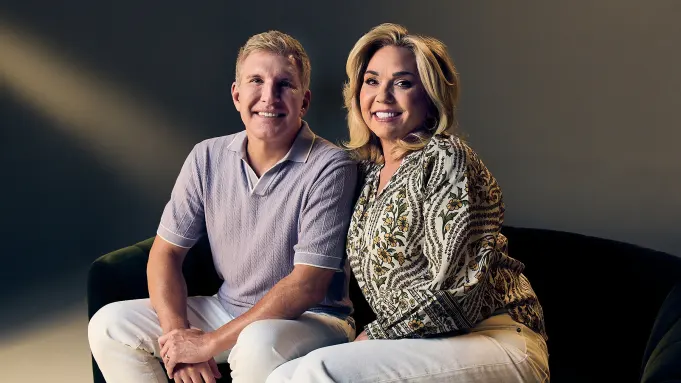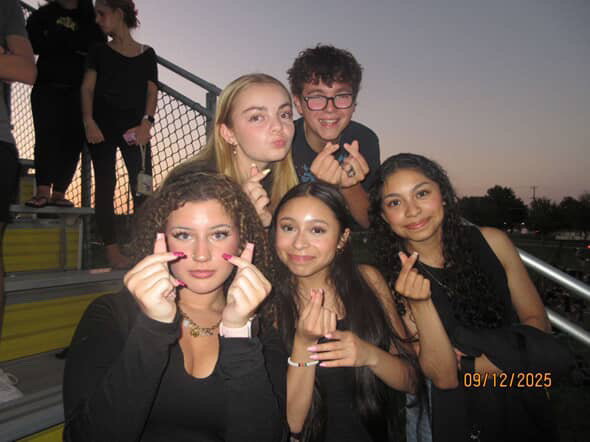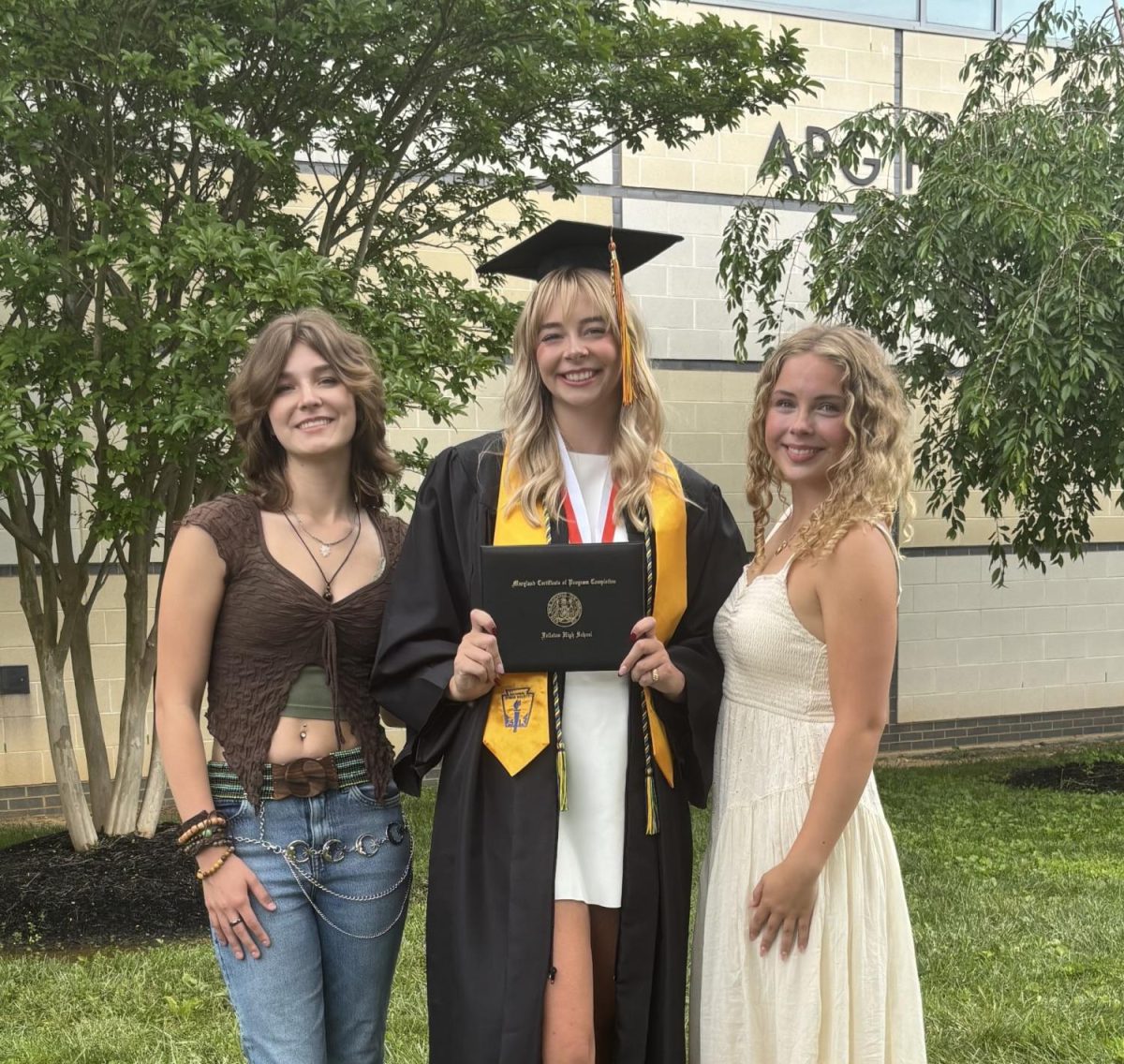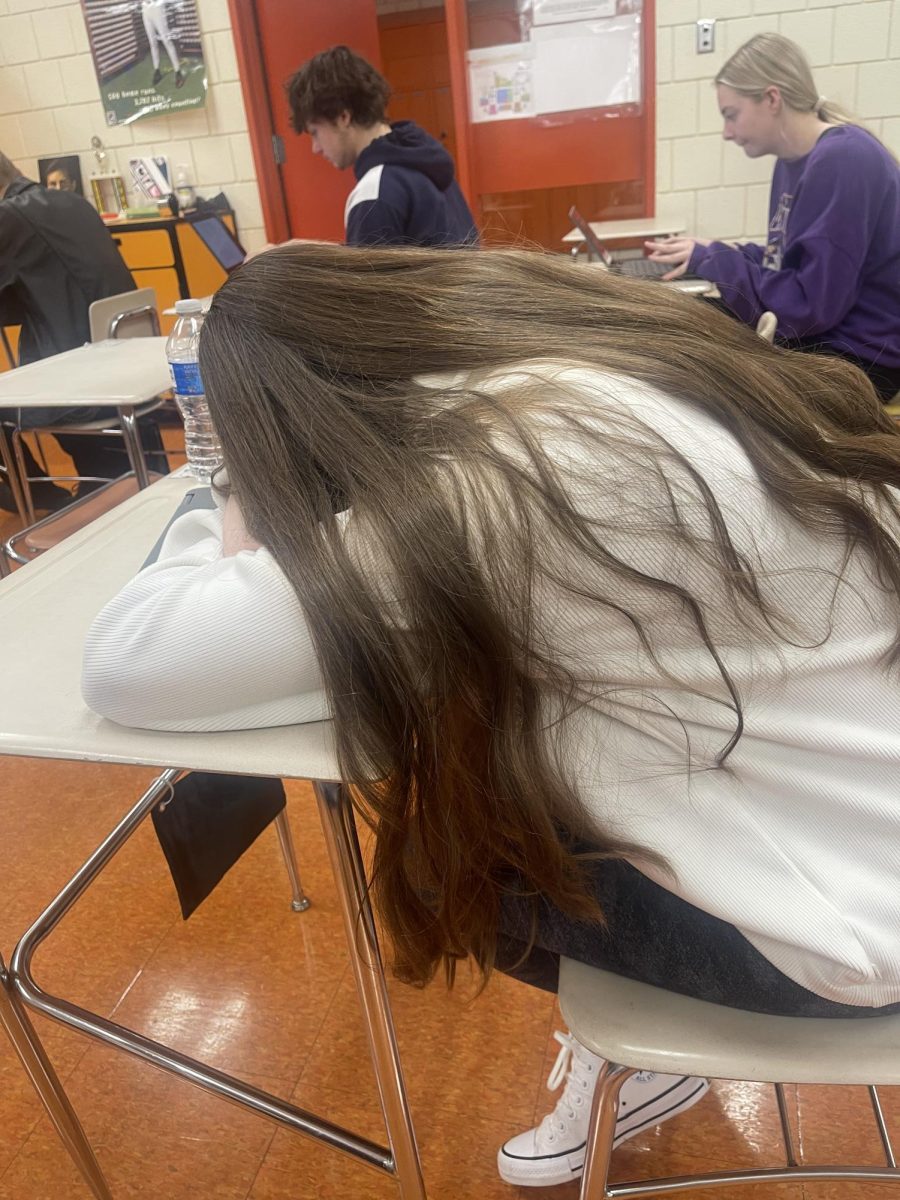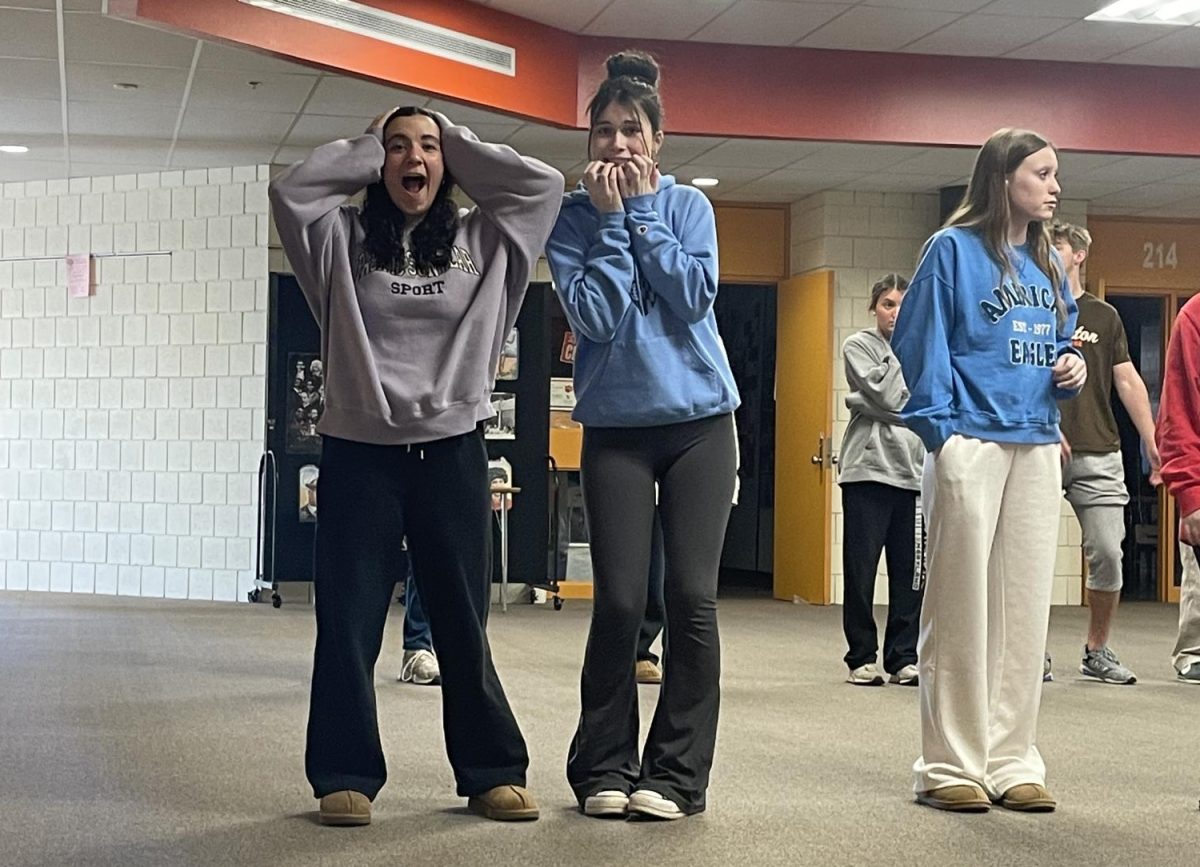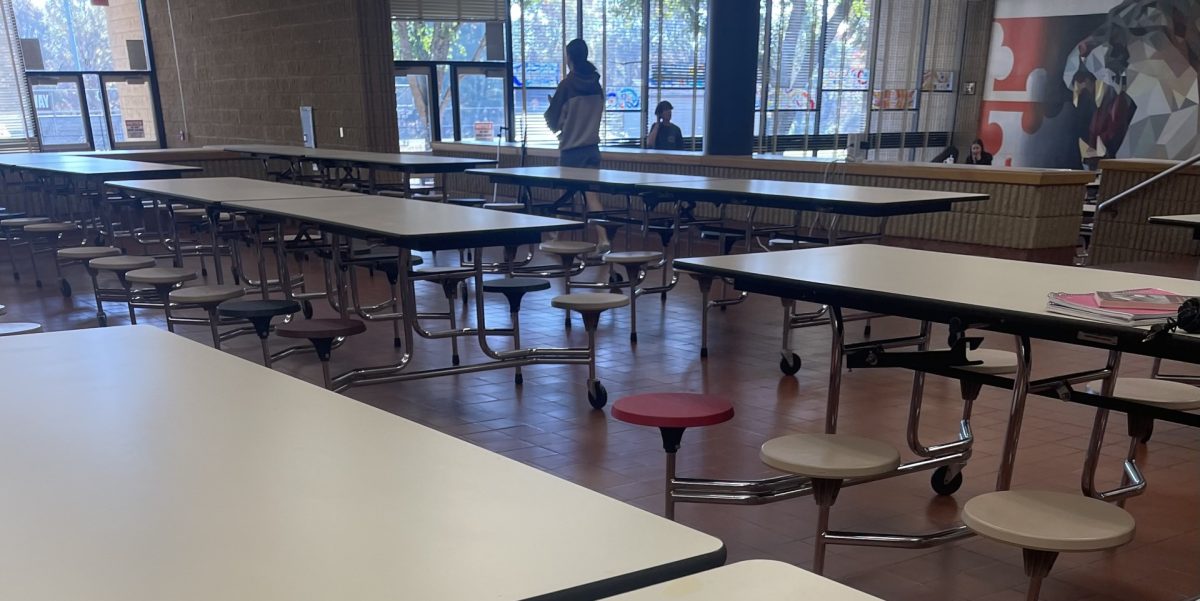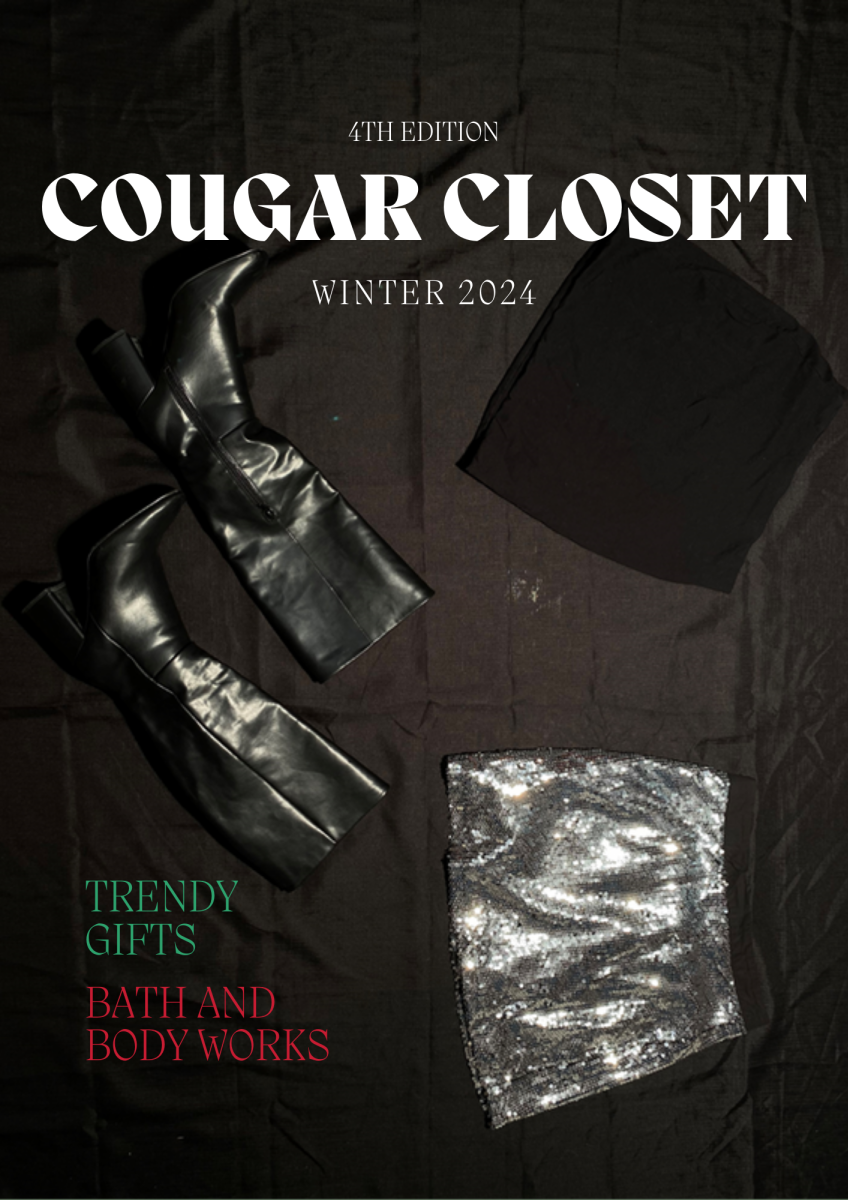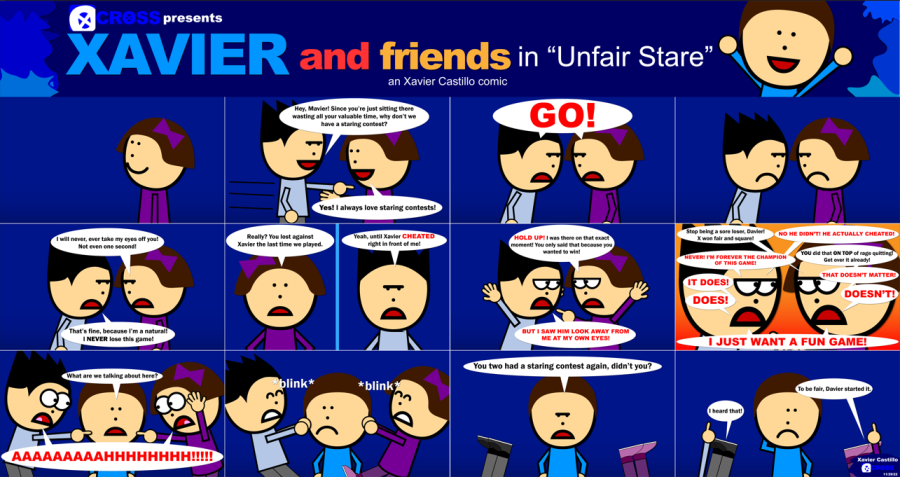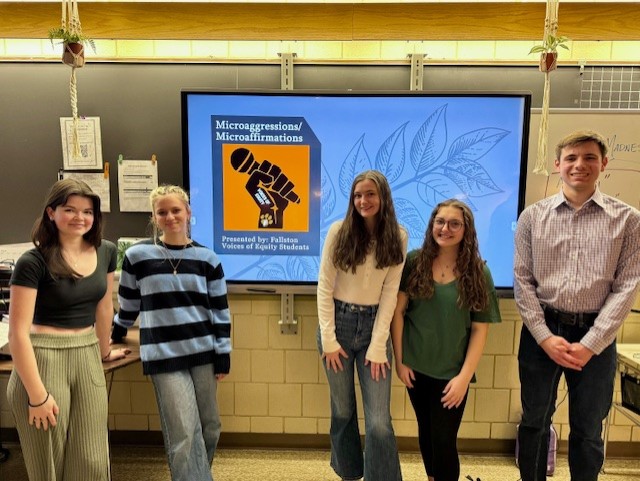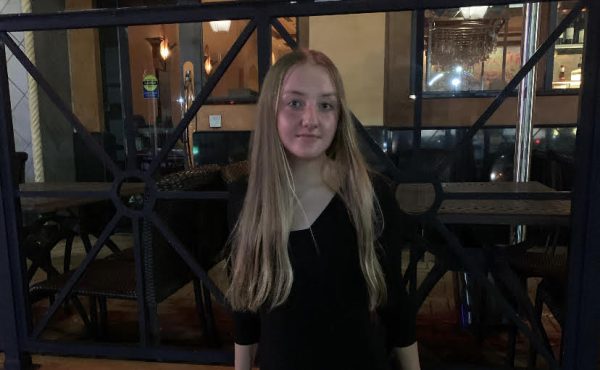Voices of Equity recently came together to have another meeting with the FHS staff to discuss different topics such as microaggressions, how to best handle them, and ways to combat them using microaffirmations. They discussed how these topics may affect the community and raise the morale of the school. Students Julianna Mullen (12), Jackson Rockhill (12), Kaylee Spiegel (11), Sofia de Angelis (10), and Adeline Bogert (9), presented to the staff on March 14th to discuss these topics.
The presentation was put together by the team with the help of their advisor Ms. Rizer, who said, “I helped with developing the presentation and revising it to be the final product.” From there, the students took over and presented to the faculty themselves.
“We aimed to establish an understanding of what microaggressions are and how they affect those on the receiving end, providing examples from Fallston specifically, and giving the staff tools to effectively shut them down when they hear them,” de Angelis explained.
Their many meetings throughout the year cultivated in delivering this presentation. Like last year, their goal was for their presentation to serve as a sort of inspiration or reality check about how we can improve our school, better approach equity in the classroom, and how we can serve students best.
Mullen says, “It’s a tough task, to present to staff and navigate the mixed emotions of these topics, but our many hours spent rehearsing and editing instilled a sense of confidence within me and I think in the whole group. We care a lot about this topic and feel that our message is important! I’m extremely proud of the other VoE members for stepping up to advocate for their peers. They did a fantastic job and I know that with Jackson & I graduating this year, they will continue a legacy of advocacy! I can’t wait to see what they do!”
Microaggressions can be found everywhere, small sayings that you may not think about which can hurt the learning enviornment. Spiegel went into detail on this, explaining, “Microaggressions are statements that discriminate against an individual or group. Many times, when people say these, they don’t even recognize it. Something as simple as ‘Have mom and dad sign this’ is a microaggression because not everyone has one, and often that is a sensitive topic.” The ideas they presented to fix these problems are “to serve the students, and to get the gears turning in the staff and make a change,” described Mullen.
During the presentation, the group introduced four strategies of handling microaggressions:
Interrupt: There are two options – either calling in or calling out, both of which interrupt microaggressions. You can abruptly address it with a quick “we don’t speak like that,” which would be calling out the action. Or you can “call in” where you open up a conversation about the details of the action, even inviting the person to “Tell you more.” Each time you hear it you need to interject the conversation and redirect.
Question: to ask the meaning behind what the phrase is trying to convey. For example, what is the intention? Is it meant to be hurtful? The hope being that when the external microaggressions are addressed, that becomes the first step in changing our internal monologues.
Educate: explain the offense directly so the speaker understands the impact and thinks differently next time.
Echo: add your vocal support to someone else who has already corrected the issue. Echos are particularly powerful because they validate and reaffirm that there is a concerning issue with what happened.
During the meeting, Spiegel went into depth about what she saw. “With teachers and staff members asking questions throughout the presentation, I could tell we would be making a change in them and then through them,” Spiegel says. Everyone was happy about the outcome. Rockhill described the reaction, saying, “Presenting felt rewarding and addressing the topic felt nice as we would be able to stand on common ground with staff.”
The group was able to bring awareness to the staff, hoping to see change in the coming future. We are so proud of the changes that are being made to better our school! Julianna Mullen concludes, “I think our presentations stick with staff in a way. Our words are on behalf of our peers, the student body. Our goal is the same as theirs: better serve students. So, I think once the presentation is over that’s when the real work begins, and change starts to come.”
